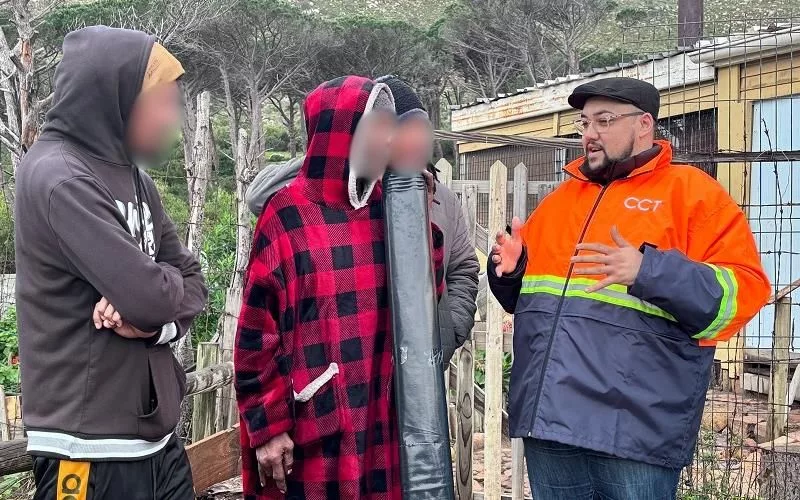Cape Town’s fight against flooding is a story of triumph over tragedy. The city’s flood management strategy includes distributing flood kits, cautioning residents about living in high-risk zones, and centralizing disaster relief and funding. This approach is part of a broader urban resilience framework that equips the city to endure and recover from shocks and stresses. Despite ongoing challenges, the city remains committed to ensuring the safety and wellbeing of its residents.
Triumph Over Tragedy: Cape Town’s Fight Against Flooding: Cape Town’s flood management strategy is part of a broader urban resilience framework that equips the city to endure and recover from shocks and stresses. The city’s unique approach to managing the flood crisis includes centralizing disaster relief and funding through the national ministry, cautioning residents about the dangers of living on flood-prone lands, and distributing flood kits and relocating residents living in high-risk zones.
In July 2024, Cape Town, South Africa, set a remarkable record. The city’s Human Settlements Directorate distributed over 16,000 flood kits to various types of accommodations, including informal settlements. This significant feat was in response to the fierce storms that had been pounding the metropolitan area for several weeks.
Cape Town’s struggle with floods is a multifaceted issue, with environmental, societal, and infrastructural aspects at play. A large segment of the city’s population resides in informal settlements, often nestled in low-lying regions, floodplains, or near water bodies such as dams and wetlands. While these areas might appear dry to the casual observer, they are susceptible to flooding, particularly during periods of intense rainfall.
Battling the Elements: A City’s Response to Crisis
The flood kits that the city distributes—comprised of plastic sheeting and nails—are an essential shield against the harsh weather conditions. These kits, coupled with instances of relocations and the use of absorbent material to soak up water, are integral to the city’s immediate flood response. Additionally, standby teams are prepared to provide assistance, anticipating further downpours.
City officials, with an eye to prevent the recurrence of such scenarios, have been proactive in cautioning residents about the dangers of living on flood-prone lands. The associated health and safety risks have led the higher tiers of the city’s informal settlements management to devise a relocation strategy for those living in high-risk zones.
The City of Cape Town has a unique approach to managing the flood crisis: centralizing disaster relief and funding through the national ministry. The City’s Mayoral Committee Member, Councillor Carl Pophaim, urges for the disaster mandate and finance to be devolved to the City itself, facilitating swift and direct relief initiatives.
Beyond Crisis Management: Towards Urban Resilience
Cape Town’s flood management strategy extends beyond immediate response. It is part of a broader urban resilience framework that strives to equip the city with the capacity to endure and recover from a variety of shocks and stresses.
The devastating impacts of the floods spread over 37 areas of the metro, including Khayelitsha, Lwandle in Strand, Nomzamo, Gugulethu, Masiphumelele, Macassar, Sir Lowry’s Pass, Mfuleni, Tafelsig, Vygieskraal, and Ocean View, among others. Each area, with its unique social and physical traits, presents its own set of challenges and opportunities for flood management and urban resilience.
Standing Strong: Cape Town’s Resilience Narrative
Cape Town’s flood management strategy is representative of the city’s broader resilience story. It is a tale of a city adapting to the ravages of nature, rallying to protect its inhabitants, and working towards a safer, more resilient future. The record delivery of 16,000 flood kits is a testament to the city’s dedication to its people and its resilience in challenging times.
Despite the ongoing rains and persistent challenges, the city remains resolute in its commitment to guaranteeing the safety and wellbeing of its residents. The flood kits, relocation strategies, centralization of funds, and proactive advisories against risky settlements all contribute to a larger goal — a city united in facing the storm.
1. What is Cape Town’s flood management strategy?
Cape Town’s flood management strategy includes distributing flood kits, cautioning residents about living in high-risk zones, and centralizing disaster relief and funding. It is part of a broader urban resilience framework that equips the city to endure and recover from shocks and stresses.
2. What are flood kits and how are they used in Cape Town’s response to flooding?
Flood kits distributed by the city contain plastic sheeting and nails and are an essential shield against the harsh weather conditions. They are coupled with instances of relocations and the use of absorbent material to soak up water, integral to the city’s immediate flood response.
3. What is the City of Cape Town’s unique approach to managing the flood crisis?
The City of Cape Town centralizes disaster relief and funding through the national ministry. The City’s Mayoral Committee Member, Councillor Carl Pophaim, urges for the disaster mandate and finance to be devolved to the City itself, facilitating swift and direct relief initiatives.
4. What is Cape Town’s broader urban resilience framework?
Cape Town’s flood management strategy is part of a broader urban resilience framework that strives to equip the city with the capacity to endure and recover from a variety of shocks and stresses.
5. What challenges does Cape Town face in its struggle with floods?
Cape Town’s struggle with floods is a multifaceted issue, with environmental, societal, and infrastructural aspects at play. A large segment of the city’s population resides in informal settlements, often nestled in low-lying regions, floodplains, or near water bodies such as dams and wetlands. These areas are susceptible to flooding, particularly during periods of intense rainfall.
6. How does Cape Town’s flood management strategy reflect the city’s resilience narrative?
Cape Town’s flood management strategy is a testament to the city’s resilience in challenging times. It is representative of the city’s broader resilience story, a tale of a city adapting to the ravages of nature, rallying to protect its inhabitants, and working towards a safer, more resilient future.











